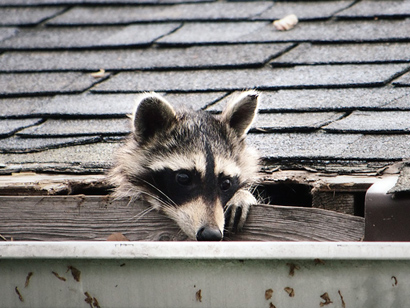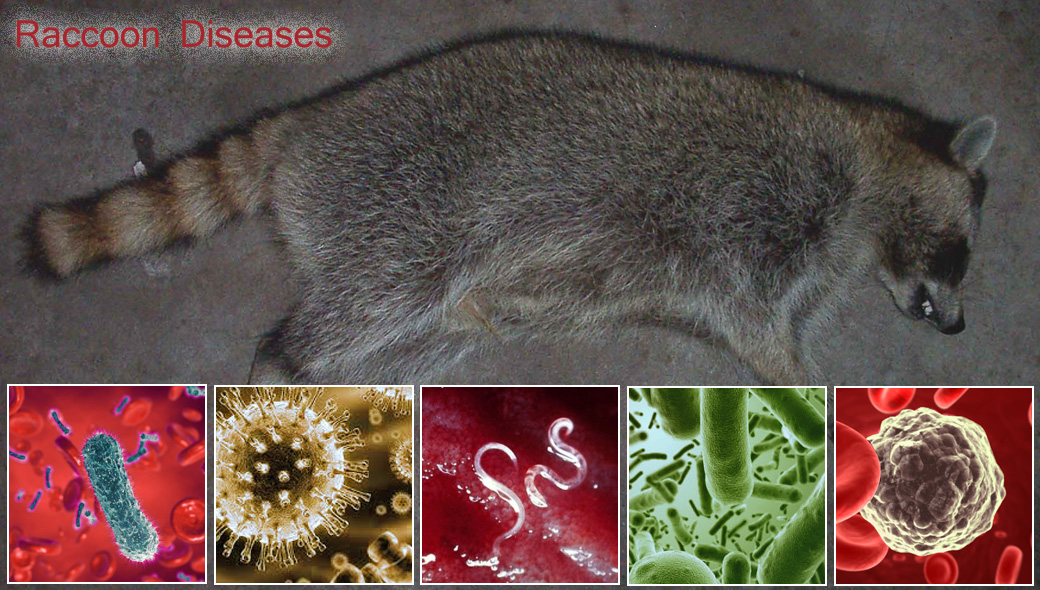- USA Wildlife Removal Education Guide and Resources
Raccoon Diseases Transmitted to Humans or Dogs

What Diseases Can Raccoons Transmit To Pets And Humans - With their inquisitive nature and their clever and innovative ways of getting to food, along with their adorable features, there is no doubt that raccoons can be very cute and in some areas have become quite friendly where they are regularly fed by humans. Unfortunately, this contact between humans and raccoons can lead to several diseases being transmitted. It is also worth noting that there are several diseases that can also be transmitted to domestic pets such as cats and dogs by raccoons, which does mean that raccoons are not the best neighbors when they live side by side with people and their pets.
Rabies
One of the most important things to be aware of when getting close to a raccoon is that around a third of the documented cases of animals carrying rabies in the United States every year are raccoons. Signs that a raccoon may have rabies can include unusually aggressive behavior, frothing at the mouth and stumbling as though they are injured or disorientated. It is vital to stay away from animals displaying these symptoms, as rabies is transmitted by a bite or scratch, and can have significant consequences for people and domestic pets.
If you or a pet is bitten or scratched by a raccoon, then it is important to speak to your physician or to your local vet to take a test to see if rabies has been contracted. Because of the widespread awareness of the threat of rabies, and prompt responses by those attacked by rabid raccoons, there is only one known case of a human fatality caused by the transmission of rabies from a raccoon to a person.
Distemper
Distemper is a disease that can be commonly transmitted from raccoons to cats and dogs, and is usually transmitted by these pets coming into contact with fluids that have been secreted by raccoons, including urine, feces and nasal fluids. Symptoms that a pet may have contracted distemper include a loss of appetite, dehydration and diarrhea, while pets will likely have a noticeable increase in saliva and nasal secretions that will appear like a runny nose. The animal will also suffer with a fever and may have difficulty breathing, and if left untreated the disease can eventually become fatal.
The best way to avoid this disease from being transmitted is to ensure that your cats and dogs are vaccinated against distemper, particularly if you live in an area where there is a known raccoon population.
Raccoon Roundworm
This disease is one that is caused by the roundworm eggs that are excreted from the raccoon through its feces, but because these eggs are particularly light they can easily become airborne and can be inhaled by humans. The disease can have serious consequences for people, and in extreme untreated cases can be fatal. Symptoms can include tiredness, loss of vision and a lack of physical control and coordination, and because it can be transmitted without any direct contact between the raccoon and the victim, it can also be quite difficult to diagnose.
Leptospirosis
Leptospirosis is a bacterial disease that is transmitted from raccoons through people coming into contact with water or other fluids contaminated with raccoon urine. The disease sees significant spikes in terms of the number of cases in the spring and the fall, and for nine out of ten people the disease will have fairly mild symptoms that is similar to the flu, and they will either recover naturally or be treated by a course of antibiotics. However, in the remaining ten percent of cases that aren't quickly treated, the disease can lead to liver failure, meningitis and severe fatigue.
Leptospirosis is another disease that can also be transmitted to household pets such as cats and dogs, and one of the most distinctive symptoms is seen in the whites of the animal's eyes, where a jaundiced yellow color is a major symptom. Most cases of leptospirosis are never reported to medical specialists, and the World Health Organization estimates that it is a disease that may infect up to ten million people every year.
Salmonella
The most common situation in which salmonella can be transmitted from raccoons to humans is when the animals have been found living in an attic or outbuilding, and then removed from the property. This bacteria is often found in the feces of raccoons, and when people clean up the droppings of the raccoons, the salmonella bacteria can be transmitted, and due to the durable and resilient nature of the bacteria, it remains alive in the feces for quite a long time, meaning it can be transmitted even if the droppings aren't fresh.
While salmonella is not generally a threat to life, it can cause some serious health problems including fever, severe diarrhea and pain in the abdomen. There are a small number of people who die of salmonella in the United States every year, but the most common cause of infection comes from eggs, with older people with a compromised immune system most at risk when infected with the disease.

Go back to the main Raccoon Removal page for more information about raccoon disease, and which ones humans can get, or pets such as cats or dogs.

